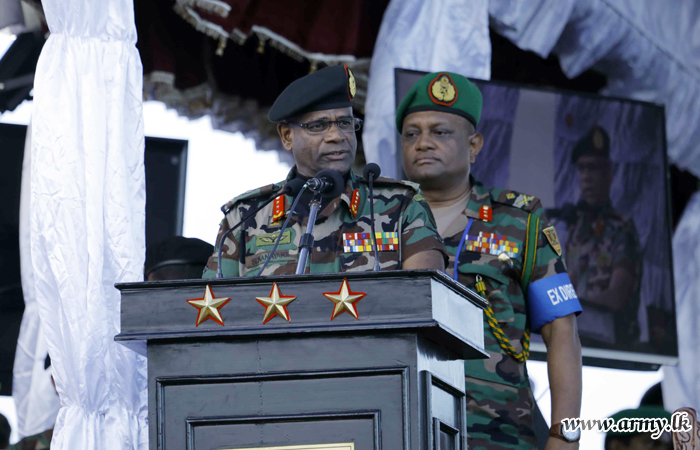
The former head of Sri Lanka’s army has been inducted into the US Army Command and General Staff College’s “International Hall of Fame” this week, an appointment that has led to widespread outcry from Tamil victims around the world.
Mahesh Senanayake, who has had a long Sri Lankan military career and once ran for president, was awarded in a ceremony held in the US this week.
“The hall’s purpose is to provide a prestigious and visible means of recognition for international graduates who through military merit obtained qualifying positions of importance in their respective country’s armed forces,” said a US official at the ceremony.
“We have inducted 285 international graduates from 75 different nations.” Senanayake was the 286th, having studied at the college in 2000.
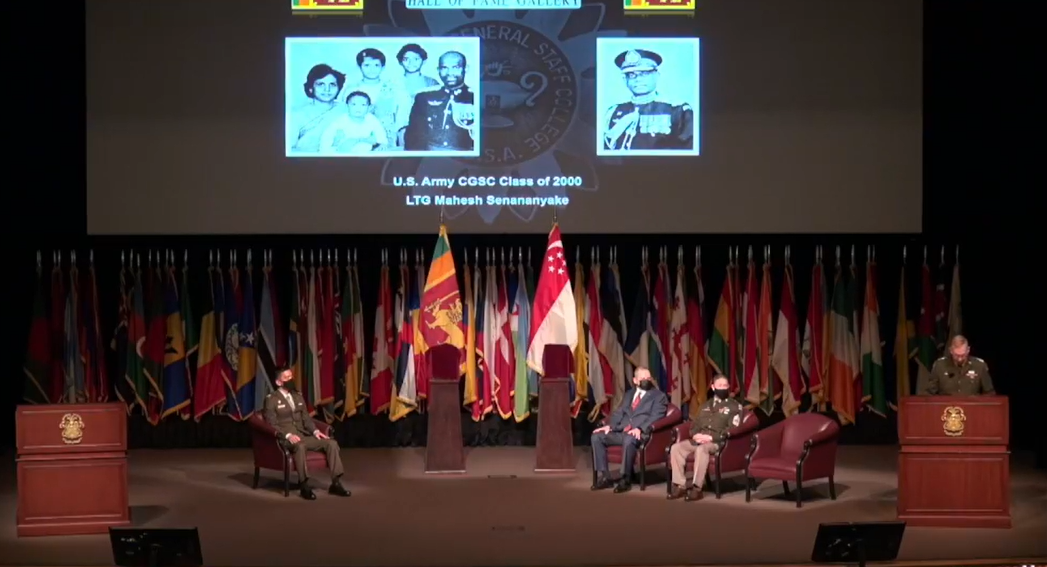
Commandant of the United States Army Command and General Staff College Lt General Theodore Martin detailed Senanayake’s military career in Sri Lanka, noting that he has “actively contributed to all major military operations conducted in the North and East of Sri Lanka”.
“His contributions towards resettlement of internally displaced persons and service towards the reconciliation process following a 27 years long civil war in his country are truly noteworthy,” stated Martin, adding that Senanayake was a “trusted and important partner in the bilateral military co-operation between our two countries which has contributed directly to a safer and more prosperous Indo-Pacific region”.
Though Senanayake was not present at the American ceremony an address was delivered on his behalf.
“This is a historical moment for me, my family and my country as I am the first inductee from Sri Lanka to have this honour form this prestigious college, particularly from the United States army,” said Senanayake.
“Coming to Fort Leavenworth was one of my dreams when I was a young office,” he continued, saying that “since then Fort Leavenworth and CGSC have become an inseparable part of our lives”.
“If you judiciously apply what is being taught here, take my word, you will remain victorious in all situations,” said the Sri Lankan.
“Let me humbly acknowledge the efforts taken by the commandant, organiser and the US embassy in Sri Lanka for their wonderful efforts to allocate to me a place in the international hall of fame.”
Accusations of war crimes
Senanayake’s military career however has been a long and controversial one.
After enlisting in 1981, he rose up the ranks and joined the Sri Lanka Army Special Forces Regiment – a unit that was heavily involved with reconnaissance and other covert operations. A Sri Lankan military website also states that Senanayake went on to “command the 3rd Special Forces Regiment which was instrumental in introducing the LRRP concept to the Sri Lanka Army as the war for peace was taking a decisive turn”.
Sri Lanka’s LRRP or Long Range Reconnaissance Patrols are accused of several crimes including assassinations and attacks on Tamil civilians. Sunil Ratnayake, who was sentenced to death over the massacre of eight Tamil civilians before his subsequent presidential pardon, was one such member of the elite military unit that Senanayake reportedly helped to set up.
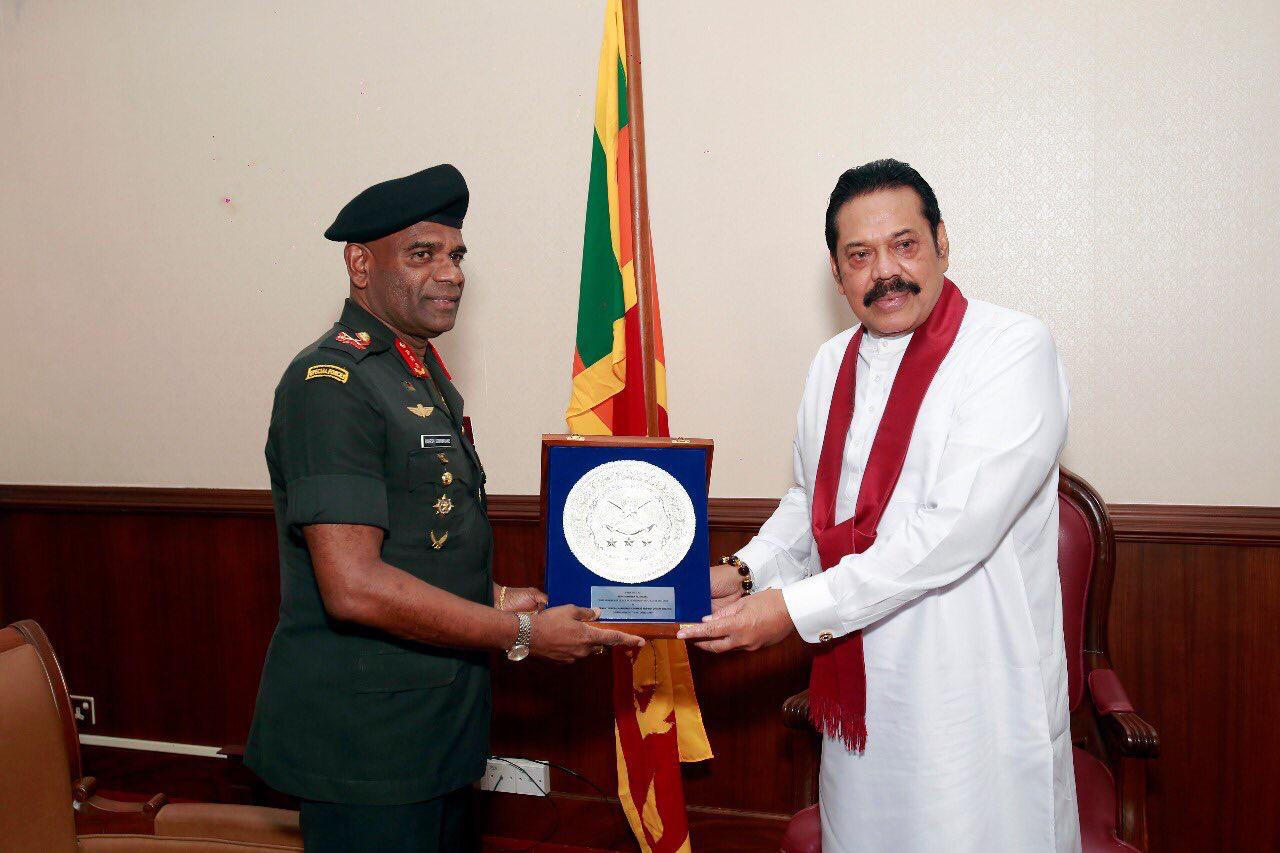
The military went on to note that he also served as the staff appointment of Colonel General Staff, 52 Division and Brigadier General Staff at the Security Force Headquarters, Jaffna "during the most critical phases of the humanitarian operations before May 2009”.
It also added that he served as “Director Plans during which time the Humanitarian Operations against terrorists were at their peak in that critical hour of history”.
The “humanitarian operations” are what the Sri Lankan military terms the massive offensive that culminated in 2009. Tens of thousands of Tamil civilians were killed by the military, with hospitals bombed, widespread sexual violence and extrajudicial executions.
‘As we give to you, we can take back’
In 2016, Senanayake was appointed Commander of the Sri Lankan Security Forces in Jaffna before he was subsequently promoted to the head of the Sri Lankan army.
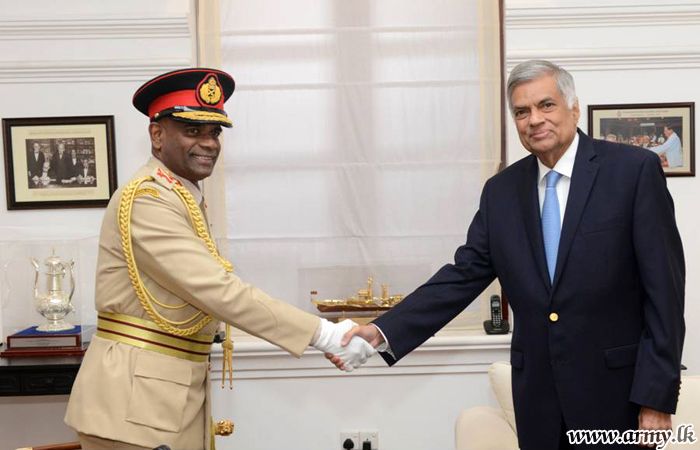
During this period however, Senanayake delivered several stark warnings.
Chief amongst those was public statement that that the army was able to take back what it 'granted' to the Tamil people, at the launch of a housing scheme in 2018.
"Like we grant you these houses and lands, we able to take it back again," he told the crowd via a hesitant Tamil interpreter, prompting her to relay the ominous message.
Whilst stationed in Jaffna, a region that continues to be heavily occupied by the Sri Lankan military, Senanayake repeatedly claimed that there was no reduction in security in Jaffna with the number of troops and army camps remaining the same.
"The recent hand over of lands does not mean giving up camps", he added, commenting on the apparent release of private land to Tamil civilians.
Two years later, he warned yet again that the “army is ready to re-organise and re-situate the camps to ensure national security”.
War crimes denial
Asides from accusations of being involved in war crimes, the retired commander has also repeatedly denied that any rights violations had taken place.
In 2017, he pledged to protect those who “fought bravely” in the military and that “murderers” would be punished.
"Those who fought the war will not be punished,” said Senanayake. “Not a single soldier who fought bravely has been punished, nor will they be allowed to be penalised because we have not committed any offences".
He went on to repeatedly reiterate his support for troops accused of committing mass atrocities, stating that they were “war heroes” who carried out a “humanitarian operation”.
Speaking on the 69th anniversary of the Sri Lankan army, Senanayake told soldiers that “I distinctly believe that, you will pursue to maintain the national and international reputation earned by the Sri Lankan army over the last six decades… This peaceful environment was brought by brave war heroes who actively participated in the humanitarian operations”.
In 2018, he again commended “war heroes” who “rescued Tamil civilians” and defended the “country's unitary status”.
That same year, he announced the new “Directorate of Overseas Operations”, which was to be dedicated to defending the military from war crimes charges.
“The Army has not told its side of the story, which is what the new think tank will do,” he said. “A few personnel may have committed crimes, but the whole Army cannot be blamed for that.”
He also denied the overwhelming casualty figures from the last phase of the war, and instead said the number of civilians died was from 7,000 to 8,000. After providing an initial death toll of 40,000, the UN found evidence suggesting that 70,000 were killed. Local census records indicate that at least 146,679 people are unaccounted for and presumed to have been killed during the Sri Lankan military offensive.
The Tamil diaspora has also frequently been in the commander’s sights, with Senanayake have attacked them for criticising the military, stating that they have been supplying “distorted, malicious and untrue information”.
Speaking at an event to inaugurate the military’s Directorate for Overseas Operations in Colombo, he told reporters that "various anti-Sri Lanka Army groups, including the diaspora keep pressure on international organizations supplying them with distorted, malicious and untrue information of different nature and some of those agencies continue to deter our progress by doing so”.
The year before, after the Associated Press detailed ongoing allegations of rape and torture of Tamil men by Sri Lankan security forces, Senanayake claimed "there are people who come back and make up these stories, especially people who are living in Europe".
"I'm very confident on what I say, because army was not involved and as for that matter I'm sure that police also were not involved," he said, adding, “There’s no reason for us to do that now.”
A state of militarisation
More recently, in addition to his ardent Sinhala nationalism, Senanayake has been a firm proponent of Sri Lanka’s militarisation.
In the aftermath of the Easter Sunday bombings, he told the BBC that they occurred as a result of "too much of freedom".
"Too much of freedom, too much of peace for the last 10 years. People forget what happened for 30 years. People are enjoying peace and they neglected security," he said, when asked why Sri Lanka was targeted.
He went on to call for the Muslim Affairs Ministry to be brought under the purview of the army and police. "This ministry should not be given a Minister of Muslim nationality,” he said. “We often hear about fundamentalists and extremists. The Minister of Muslim affairs does not look into these issues properly. In short, this is like the man who is living in a house is checking his house himself for suspicious things… The duty of the Ministry of Muslim Affairs has to be done by the Army and the Police”.
When it comes to Tamils, the commander has been much more forthright, warning the Tamil people that the Sri Lankan army holds all information about rehabilitated LTTE cadres, and therefore there was no ‘threat’ to national security.
He has claimed that the military has to “maintain surveillance all the time” as the “'Eelam' ideology still persists” and that the security forces are "always in its highest readiness to defend the country in all aggressions”.
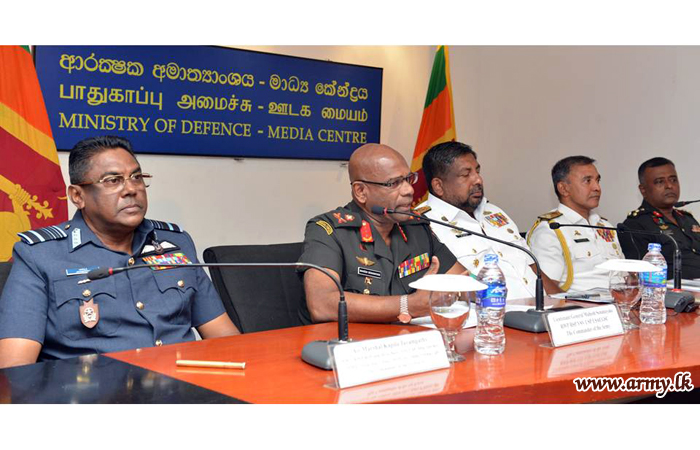
Troubling, Senanayake’s militarised mind-set also went beyond Tamils and Muslims. In 2019, he warned the military will be launching a war on drugs that will be “identical to how we finished off LTTE terrorism”.
"Once legal provisions would give coverage to us as envisaged, the Army is ready to apprehend peddlers of narcotics, distributors and addicts, launching operations with other law enforcement authorities, identical to how we finished off LTTE terrorism ten years ago,” declared Senanayake.
Senanayake’s announcement was even more stark as he was seated next to Sri Lanka’s Chief of Defence Staff Admiral Ravindra Wijegunaratne, who was arrested over the cover up of the disappearance and murder of 11 Tamil youths.
One cog in a military machine
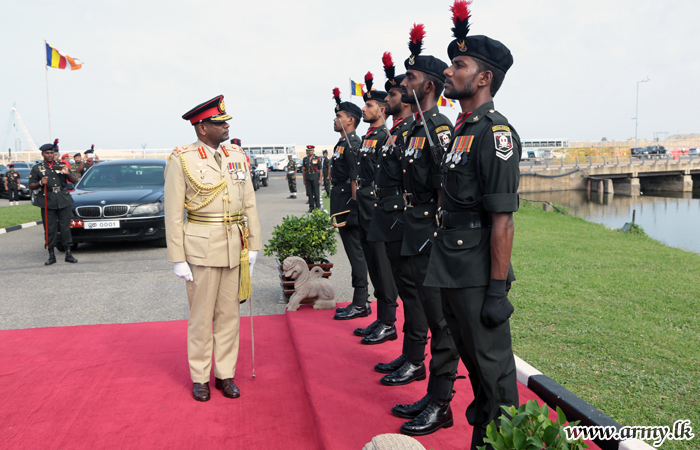
“Senanayake is just one cog in the Sri Lankan military machine that has committed mass atrocities,” said a Tamil activist who wanted to remain anonymous.
Indeed, Senanayake’s replacement as head of the army Shavendra Silva, is barred from entry to the United States over his role in overseeing war crimes.
“This international recognition of a figure that has lead an army accused of such grave crimes and denied that they have even taken place sends entirely the wrong message on accountability and justice,” the activist continued. “Sri Lanka’s current regime and those like it around the world will be watching closely.”
The honouring of Senanayake comes amidst an intense period of militarisation on the island, which has seen a new elite unit set up in the heart of the Tamil homeland and an already bloated defence budget increased yet again. Much of the rhetoric used to defend Sri Lanka’s militarisation revolves around “national security”, a term that Senanayake has frequently deployed.
“Members of the Sri Lankan military should be being held to account for violations of international law and this regime should face global condemnation for its intensifying militarisation,” said another Tamil activist. “These kind of honorary moves may be excused as being part of the pomp and ceremony of military relations, but they send very real global messages.”
“Sri Lanka cannot continue to be rewarded as it spirals downward.”
